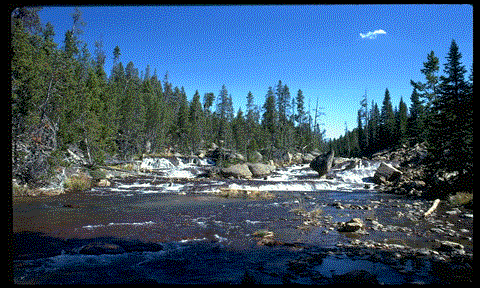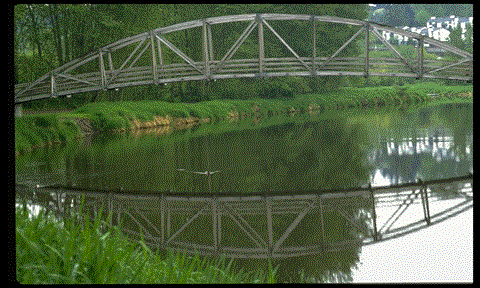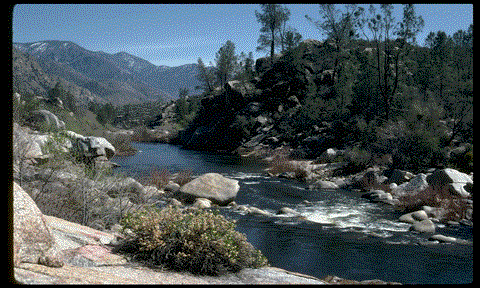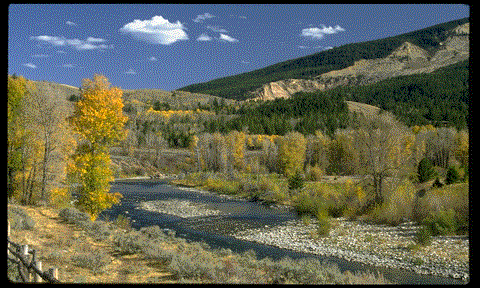Manuscript 19b, 1890
[Mrs. E. G. White's talk before the General
Conference Committee, July
14, 1890, at Lake Goguac.]
I have felt that there is too great indifference
about discerning talent and making the best use of it. It is
a painful thing to me, as the matter was presented, that we cannot
arouse our ministers to see the necessity of encouraging men
to come to the college to get an education. When they were spoken
to in reference to this matter, the answer would always be, "Well,
it will take a good deal of means." But I entreated that
something should be done.
Brother Fargo's ideas were rather narrow
and limited, and I wanted to see someone put in his place who
would make a change. Someone who would encourage the ministers,
who would not look altogether at the means it would require to
fit these men for positions of trust, and who would not think
that perhaps some of them might make a failure after all. Someone
who would look to the future and begin to lay out their work
for the prosperity and health of the cause.
At the Jackson meeting Brother Butler said,
"I will take the presidency of the Michigan Conference."
And then I sat down before him and laid it out as plainly and
distinctly as I was capable of, what the Lord would have the
men in responsible positions do. They should select helpers.
He needed one right by his side, and if there were two or three
who could work right in with him, and he not do the work but
try to educate them, it would be better, and they would thus
be trained for the work.
Said I, "What are we going to do?
We are going to be brought up here without any workers."
"Well," he said, "That is the right thing to do."
But he never lifted a finger, nor followed the direction given,
in one item as I know of.
The importance of this has been opened
before me again and again, and I would urge the necessity of
considering how we are coming out in regard to ministers. But
there have been failures. Young men often have some things unpromising,
while there are some things promising, and the unpromising traits
overbalance the promising. The pain I have felt of seeing that,
notwithstanding the directions that have been given, there has
been so little done in regard to the matter, is beyond anything
I can tell you.
When I went to California this season,
I saw the great dearth of laborers
that exists. Brother Gates and Brother Underwood know how hard
we worked at the California camp meeting. But after all had been
done that it was possible for us to do, there was not a man left
after the camp meeting to bind off the work. And there was Brother
[E. P.] Daniels, who needed someone to stand right by his side
and tell him what to do and how to work himself out. But he was
left, some considering him the worst man who ever lived, and
others trying to plaster over his course as though it was not
so bad after all. But nobody was left to bind off the work.
Letters have been coming to me asking for
help. I see the dearth, and the necessity for faithful, consecrated
laborers. Elder Loughborough ought not to be left in that conference
as president another year. The man is just about threadbare;
his strength is about used up. Look at Brother Olsen; there he
is, all worn down.
What courage have we--what courage can
we have--to put forth efforts in different places that use up
our strength and vitality to the very last edge, and then go
away and leave it to all ravel out, with nobody to look after
it?
Now I will just mention my experience.
After I stepped on American soil, after coming from Europe, I
did not go into a house but went into a hotel and took my dinner,
and then went to New Bedford. There was the place of all others
where plans should have been laid to keep somebody there to bind
off the work. There were wealthy people, and deeply convicted.
It was a wonderful interest we had there. The people would come
out to the meeting and sit and listen with tears in their eyes;
they were deeply impressed. But the matter was left with no one
to follow up the interest; everything was allowed to go right
back. These things are not pleasing to God. We are either spreading
over too much ground and proposing to do too much work, or else
matters are not arranged as they ought to be.

We are failing in another direction, and
that is that men who can work should be linked in their labors
with those who are inexperienced, that they may get an experience
in the right direction. The inexperienced ones should not be
sent out alone. They should stand right by the side of older
and experienced ministers, where they could educate them. They
should say to them, "You must not copy my gestures, nor
the tone of my voice, so that nobody will know whether you are
speaking or whether I am speaking. You are to stand in your own
armor, with your own phase of character, sanctified by God. You
are not to take my phase of character, nor my gestures, nor my
tone of voice, nor my expressions, nor my words."
I think this has been shown me twenty times
in my lifetime, and I have tried to tell it to the brethren;
but the evil is not remedied. When one of these men who has not
an experience in the work stands by your side, he is not to think
in everything just as you think, and look at everything just
as you look at it; that if you should give up the truth he would
say, "I might as well give it up." Let them stand to
obtain a symmetry of character from the God of heaven, not that
they should have your ideas, and you have a molding influence
on them, but you should carry them right to the Bible as their
pattern. The importance of these things has been shown me so
many times that I feel a burden on this point.
Our camp meetings are a power when they
are held in a place where the community is stirred. They have
a great deal more power there than they have among our own people.
Advantage should be taken of the impression that is made by our
camp meeting. If something is done that will keep up the interest,
many souls might be secured.
It is as much our duty to look at the after-interests
of a camp meeting as it is to look after the present interests,
because the next time you go, if they were impressed and convicted
and did not yield to that conviction, it is harder to make an
impression on their minds than it was before, and you cannot
reach them again.
There is another point I want to speak
about. It is about the preaching at our camp meetings. There
is twice the amount of preaching at our camp meetings that there
ought to be. Many smaller matters that lead to things of greater
importance are utterly neglected. The idea seems to be only to
preach. And the ministers are so tired that when it comes to
looking after the little points that need to be guarded--which
points would close the door to larger evils--they have no vitality,
no time to meditate and pray and keep themselves in the love
of God during the meeting.
The sermons should come, not from a mechanical
heart, but from a heart that is filled with the love of God,
and is subdued and softened by His grace; that when you speak
the angels of God are enlisted on your side, and Christ is on
your side, and it is Christ who makes the impression.
Now, these things have been neglected at
our camp meetings. We have lost two-thirds of all that the camp
meetings were designed to accomplish. The idea seems to be woven
into the minds of some that all they have to do is to sermonize,
sermonize. While sermons are good in their place, there is sermon
after sermon given to the people that they cannot retain in their
minds--it is an impossibility for
them to do it--and they are just wearied out with sermons.
And there is another point I want you to
see: It is wearing out the ministers, wearing out their vital
organs. It is not an easy matter to go to a camp meeting and
speak to the congregations in such a high pitch of voice as many
do. There is a strain on the vital organs and you do not realize
it because you feel enthused with the spirit of the subject and
the congregation, but afterward you feel as though you were sapped
of your strength. And then the very next thing is, "Well,
there, I do not feel the Spirit of God; something is the matter
with me."
The strain has been so terrible on the
brain that there is a letting down. You cannot do otherwise.
It is the natural course of things. The next thing is backsliding.
You feel too tired to carry the matter out, to believe that God
hears you when you do pray. You think something is the matter
with you. You are separated from God and you do not know what
the matter is. Therefore you will pass over season after season
of prayer, and there is a terrible loss in this respect.

From the light that God has given me, our
brethren must get together and consider these things. The camp
meetings lose two--thirds of their efficiency and success because
the people, after so many discourses have been given, do not
have anything clear in their minds; it is a commingling of ideas.
There should be more time devoted to the
spiritual seeking of God. And there should be personal effort
with each one on the ground. After the meetings are through,
there should be a personal investigation with each one on the
ground. Each one should be asked how he is going to take these
things, if he is going to make a personal application of them.
And then you should watch and see if there is an interest in
this one or that.
Five words spoken to them privately will
do more than the whole discourse has done. But you can do more
than that. You can show love and kindness and courtesy, and in
doing that you remove prejudice. Why, they say, we heard you
were a people who did not believe in conversion, and here you
are talking to me about conversion; you are appealing to me on
conversion. And all that prejudice is swept away when you talk
to individuals in that way.
But there is strength exhausted at our
camp meetings that need not be, because we can have constant
help from God and be strengthening all the time.
These things that God had shown me were
brought to my mind as I lay there, as it were, under the enemy
Death. And I said to those around me, "I am learning
my lesson, and I hope I will not have to learn
it again."
The lesson was that in the education of
young men we should not lead them to think that it is sermonizing
that is to do the work. We say it, but let them see the results
carried out. After the discourse is through, we should take time
to seek God by ourselves. That used to be the way. The ministers
would go away and pray together, and they would not let loose
until the Spirit of God responded to their prayers. They would
come away with their faces fairly lighted up, and when they spoke
to the congregation their words meant something. They reached
the hearts of the people because the Spirit that gave the blessing
to them prepared the hearts to receive the message.
There is far more being done by the universe
of heaven than we have any idea of, in preparing the way so that
souls shall be converted. We want to work in harmony with the
messengers of heaven. We want more of God. We do not want to
feel that it is our talking and our sermonizing that is to do
the work. We want to feel that unless the people are reached
through God, they never will be reached.
And when we see a young man of promise
we should use our influence to get him into the college. If they
have not any money--young men seldom, if ever, lay by any money--do
not say, Go and work a year and then go into the college. No,
but try to help them; present them before the churches; bear
a decided testimony and say, Brethren, we want you to help these
individuals through the college. And all the time keep your eye
on them just as though you were their guardian.
There are men who lie in their graves today
who ought to be alive, and there are those who are going there--and
what is the reason that God does not raise them up to health?
The Lord wants us to learn our lesson, that we cannot use up
the vital energies unreasonably and exhaust them just as though
we had to do the work and there was not any God in heaven, and
we are determined to make a success even at the cost of our lives.
But I tell you we must believe that God does the work, and we
should enlist Him in our work. Say to Him, Your Word has said
it, that you will be with us always. I do not feel that animation
I would like to feel, but God has said it and it will be done.
Then, in a straightforward manner, give the practical lessons
of Christ for which the people are starving to death.
[Elder Underwood:] "Do we preach too
long?"
[Sister White:] Yes, indeed; and I, too;
I take that right to myself. I preach too long.
[W C. White:] "Let me ask a question.
Are we to take your example as
an exponent of your views?"
[Sister White:] Well, didn't I just make
my confession? And haven't I given you an example? I consider
myself an exception, but I think I have ventured too far even
in the exception. But I will tell you why I consider myself an
exception. I have been taken by my husband and carried on the
cars and laid on the seat, and I have gone to a place of meeting
and have stood under paralysis that had been upon me for weeks,
so that I have not been able to command my language to speak
a sentence correctly. And yet I would stand on my feet before
the public and make my testimony as straight as a string. The
Spirit of the Lord was upon me. Everyone is not an exception.
Now, how can I tell when I am going too far? I have been brought
up to that point again and again.

Notwithstanding I said I had learned my
lesson, after I had been three days, as it were, driven, in my
mind, on the water of a shoreless ocean, it seemed as though
I could not see land. I was there with that little boat like
a ship on the water. I could see the cars, but could not reach
them. And those who were giving me treatment said, "Sister
White, why don't you touch the hem of Jesus' garment?" Well,
I tried to all I could.
Then I saw a storm coming. I could see
the clouds gathering all around me, and everything was so dark.
And then in the night season the form of Christ appeared right
before me, just as distinct as any one of your persons. Just
the moment I saw that form I said, "It is Jesus, it is Jesus;
I am saved, I am saved." The moment I looked at Him, I knew
it was Jesus. And all the trouble and perplexity which was there
was swept away, and I felt as though I was resting. Everything
I could commit to Jesus.
But there was something more for me. He
spoke and said: "Satan is the destroyer, I am your Restorer.
I will restore you." Then I was so happy, and so full of
joy that He would restore me. I cannot remember the words that
were spoken, but this is the import: Your trial is not yet ended.
You will be tempted; you will have affliction; you will have
suffering; but you are not to judge by this suffering that God
is not your Helper. I am your Restorer. You are to look to Jesus.
I did not know what the words meant.
The next day I was so happy, and I gave
my appointment; I would go out by faith. The patients were asking
me to speak. They were wealthy people there. The next day when
the heart was struck it was as though someone had struck me right
across here with a bar of iron, and it seemed to me I was going
to die right off. And the next strike was across the kidneys,
and I was so nervous it seemed to me as though I would die. If
this had come to me before this
revelation, I think I would have given up the struggle. And the
first thought was, I shall certainly be paralyzed. I had the
rheumatism in every nerve and muscle of my body. This was Sabbath.
Now, said I, shall I give up to this? I
told them, No. Brother Biter came and took me by one arm and
Sister Lockwood by the other, and I moved just a little at a
time. One carried a chair for me, and they led me into the house
and I took my seat in the church on the platform; and then I
spoke to the patients. I was never clearer in my life. The blessing
of God rested on me, and I was in pain at every breath.
There those patients sat with tears rolling
down their faces. I said, Lord, I am just as a vessel all broken
to pieces. You can affect the people, Lord. And they were affected.
Every one of those patients wanted to be introduced to me. And
they said to me, Won't you have some little talks with us women
in the parlor and tell us what we can do? And then, Won't you
pray with us? And they would come from the rooms of those who
could not get out and wanted me to come and pray for them.
We had a very solemn and impressive meeting.
The Lord was my Supporter. The impression that was made came
from the Lord, and the things that were talked about--faith in
Christ and the righteousness of Christ--were things for which
they were just starving. I never saw people grasp anything so.
One woman by the name of Farmer said, "The Lord has spoken
through you today. I have never before heard such things."
And that was the impression that went around. And when I spoke
to the helpers they were just as disappointed as they could be
to be turned aside.
But I spoke to them the next Sabbath, standing
then. We had an excellent meeting. I saw the words of Christ,
"I am your Restorer," and I have hung right [on] to
them since. And when I heard of Mary's sickness and started on
the way, I thought the first two days perhaps I would have to
be left on the way, but the third day I began to get strength.
You see the position I am brought into.
I have had to move wholly by faith. I never yet have been healed
out and out; and that is why I do not call anybody to pray for
me, because they expect that I will be healed, and I know from
the past I will not be healed. That is, that I shall not have
the work done right then and there. I have to go by faith. I
have to march out without any sight or feeling. If I should say
I had a change of feeling, I would tell a falsehood; I have never
had it yet. Now, you see, I have had to go in that way, and the
Lord has sustained me every time.
Now, how far shall I go? I have taken the
position that if the Lord gives
me a burden for the Battle Creek church, I will tell it to them.
But unless I have a burden, I have nothing more to say. I spoke
21 times in as many days there at Battle Creek. I did not speak
every day, but some days spoke twice.

This was before I left; and I never got
rested until it resulted in this terrible sickness. I knew, and
told them at Fresno, that I was fighting my last round. And then
in those private meetings the labor was worse than speaking in
public, and having to tell them such straight things as I had
to tell them.
Now I do not know whether your question
is answered or not. Perhaps it is like a long sermon--it is so
long that you have lost the main point.
[Elder White:] "Now I have questioned
somewhat whether one person had the right to shape his action
on another's experience. I have questioned if it was not our
duty to shape our action on our own experience."
[Sister White:] Well, now, it has been
like this. I have been sick and in pain. And I want to tell you
that there is never a time when I make an appointment but that
before that appointment comes, I have wrestled with the most
terrible difficulty of the heart, or some infirmity, that makes
it seem like an impossibility for me to go before the public.
And yet, just as soon as I stand on my feet before the people,
I feel just as sure that the angels of God are right by my side,
as if I opened my eyes and looked upon them as I did at Christ
at the time He restored me. I am taken right out of and above
myself. I feel just as though, as it were, the judgment is right
before me; just as though the universe of heaven is looking upon
me, and as though I have these things to do, and I must say them
[even] if I drop dead in the desk.
Now I do not believe it is the duty of
others to do that. And every day I feel that way. It is because
the terrible realities of eternity are opened before me, and
as soon as I get upon my feet the terrible realities seem to
enshroud me like a garment.
Now, the time Brother Farnsworth and another
brother, whose name I cannot call, came to our house last winter
for me to go to a meeting of the young people at the Tabernacle,
I was so encompassed with infirmities that I did not dare spend
that night without sending for the doctor. I rarely send for
a doctor, but I sent for a doctor before those brethren came.
And those brethren came in before the doctor came, and I went
to the meeting. When the doctor came down, his patient was not
there. We had a most precious season at that meeting. Now that
is the way my course has been.
[Elder Farnsworth:] "Don't you think,
Sister White, a great many of our
ministers have received great injury from their manner of speaking?"
[Sister White:] Oh, yes, indeed; I have
seen it over and over. My husband got in the way of sometimes
raising his voice very loud, and it seems as though he could
not get out of that way. And there is a brother in Texas, Brother
McCutcheon, who is dying just as surely as if he put a knife
to his throat. Since I have come here, I have thought of that
and I must write to him.
[Elder Kilgore:] "He has been told
about that."
[Elder Farnsworth:] "They are all
around in every conference."
[Sister White:] In my younger days I used
to talk too loud. The Lord has shown me that I could not make
the proper impression upon the people by getting the voice to
an unnatural pitch. Then Christ was presented before me and His
manner of talking. There was a sweet melody in His voice. His
voice, in a slow, calm manner, reached those who listened. His
words penetrated their hearts, and they were able to catch on
to what He said before the next sentence was spoken. Some seem
to think they must race right straight along or else they will
lose the inspiration and the people will lose the inspiration.
If that is inspiration, let them lose it, and the sooner the
better.
Well, I wrote an article on that point
when I was at St. Helena, because I felt as though our ministers
were going down, and there was some cause for it. They are violating
the laws of their being, and their vital organs are suffering.
[Elder Farnsworth:] "Going back to
something you said here in the first part of your remarks about
our having too much preaching at our camp meetings, have you
anything to suggest? For instance, that we cut off a part of
the preaching services. Anything to suggest in reference to the
way we should fill in this vacancy?"
[Sister White:] When the congregation is
not so large, mostly of our people, the way would be to take
less time in speaking and let the people have a chance to testify
to what they have heard. When the crowd is there, that could
not interest them.
[Elder White]: "I have heard you say,
Mother, that we should have more teaching and less preaching;
less preaching and more teaching. Speaking of the matter of getting
the people together and having Bible readings."

[Sister White:] That was the way in Christ's
day. He would speak to the people and they would call out a question
as to what that meant. He was a teacher of the people.
[Elder White:] "Then at one time I
remember very distinctly about
your saying that, 'As we approach nearer the end I have seen
our camp meetings with less preaching and more Bible study; little
groups all over the ground with their Bibles in their hands,
and different ones leading out in a free conversational study
of the Scriptures.'"
[Sister White:] That is the work that has
been shown me, that our camp meetings would increase in success
and interest. There are those who want more definite light. There
are some who take a longer time to get hold of things and get
what you really mean. If they could have the privilege of having
it made a little plainer, they would see that and would catch
hold of that. It would be like a nail fastened in a sure place,
and it would be written on the tablets of their hearts.
When the great throngs would gather about
Christ, He gave His lessons of instruction. Then the disciples,
in different places and different positions, after the discourse
would repeat what Christ had said. The people had misapplied
Christ's words, and the disciples would tell the people what
the Scriptures said, and what Christ said the Scriptures said.
They were learning to be educators. They were next to Christ,
getting lessons from Him and giving them to the people.
[Elder Olsen:] "In our camp meetings
this season, except on Sabbath and Sunday, there has not been
more than one, or at the most, two sermons a day; many times
not more than one."
[Sister White:] There are so many things
that come in at our camp meetings. But the ministers should get
together every day and find out what their true feelings are,
and what their spiritual impressions are. You should know that
everything is drawing in even lines; that you are standing, as
the words were spoken to me, shoulder to shoulder, marching right
ahead, and not drawing off. There is unity of heart when the
work is carried on in this way, and there will be harmony among
all. This will be a wonderful means of the blessing of God resting
upon the people. There should be hours when the ministers could
get together and pray to God.
I have held back from saying it, because
I thought there were some who would not receive it, but I want
to tell you, from the light God has given me, the time that is
taken in our camp meetings in the drilling of canvassers should
be done at another time. It should be done in the several churches
and in meetings especially appointed. It should not be done at
our camp meetings.
There are some other points that should
not be brought in. There is the tract and missionary work, the
drilling in the details of how to do the work. The camp meetings
are for the spiritual enlightenment
of the people, and the spiritual part of our experience is to
be attended to at the camp meetings. And when that is done, the
power of God will be seen as never before. That is the light
I have had. I have been pained to see so much time used up in
the canvassing work.
[Question]: "Does not the same principle
hold good with reference to cooking schools?"
[Sister White:] The whole of it.
[Elder Underwood:] "Would you think,
Sister White, that taking up the detail work of drilling Sabbath
school workers would come under the same head?"
[Sister White:] Exactly; it is not the
place for it. That is to be done, but it has its time and its
place.
[Elder Underwood:] "Suppose they should
call a Sabbath school convention and meet for that purpose?"
[Sister White:] Yes; that is all right;
and have those engaged to carry out the burden of that work and
not hold the people there to hear these particular things. They
have no special work to do in that branch. The time is too precious
to be spent in that way. This has been repeated to me so many
times, "It is the day of God's preparation to prepare a
people to stand in the day of the Lord." That has meant
a great deal to me. It is all this mechanical work in our camp
meetings that has just about destroyed their efficiency and power.
But we should not make an abrupt change and rule out all these
things, but we should work to this end and keep this point in
view, and the change be brought about gradually.
[Elder Underwood:] "I would like to
ask a question on the point of having familiar meetings and allowing
our brethren and sisters to ask questions in meetings appointed
for that purpose. What would you think of that, Sister White?"
[Sister White:] That is just the way it
was in Christ's teaching. There should not be anything like controversy.
And after you have answered their question, be sure that they
acknowledge it is answered. Don't let it drop. Don't tell them
to ask that again. But feel your way, how much you have gained.
When any come in with a spirit of controversy, tell them that
the meeting is not appointed for that purpose, but it is to educate
those who have been listening and could not understand some things
in the discourse. It is not to get in their doctrinal and controverted
points.

What are our camp meetings put in different
places for? It is that the people may be educated, and special
efforts should be made for the unbelievers. They should be sought
out, and you should tell them, Now we would like to have you,
the unbelievers, come into our special
meetings. We are to do missionary work. "Ye are the light
of the world."
Why was it that Christ went out by the
seaside and into the mountains? He was to give the word of life
to the people. They did not see it just that minute. A good many
do not see it now to take their position. But these things are
influencing their lives, and when the message goes with a loud
voice they will be ready for it. They will not hesitate long.
They will come out and take their position. There is a work that
we have not done at our camp meetings that ought to be done.--Ms.
19b, 1890.
